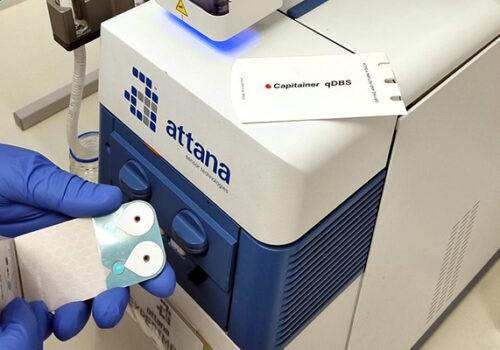Lundbeck enters a partnership with the Department of Neurosurgery at Rigshospitalet, which will provide new insights into how molecules enter the brain.
The partnership gives researchers an opportunity to study fluids surrounding the brain to learn which compounds enter the brain and how they are distributed. The findings will be published as basic research, but in the long-run, the results may lead to improved treatment opportunities for brain diseases.
“We hope to find new paths in brain research that can pave the way for future treatments by combining the expertise of Rigshospitalet and Lundbeck. The blood-brain-barrier protects our brain in everyday life, but when the brain is affected by disease, the barrier suddenly becomes an obstacle for medicines to enter the brain. With this collaboration, we hope to take the next step in developing novel drug candidates that can find their way through the brain barrier to treat a number of diseases and conditions in the brain,” says Mads Dalsgaard, Senior Vice President for Experimental Medicine and Clinical Development at Lundbeck.
The challenge
There is a need for validated methods that prove how much of a drug gets through the blood-brain-barrier and into the brain, and where it can have a beneficial treatment effect. It is this challenge that the collaboration will try to solve.
“It is quite unique that we can join together and use each other’s competencies to learn more about this particular barrier. Today, when we operate on our patients with brain disease we extract fluids from the brain, but rarely do we examine the extracted fluid in relation to the blood-brain-barrier, which means a lot of potential knowledge is lost. This study will not require additional measures or discomfort for our patients, but by allowing scientists to study the fluids from the surgical procedure, we can advance our knowledge significantly and, hopefully, find new ideas on how we can treat brain diseases in the future ultimately to the benefit of our patients,” says Morten Ziebell, leading MD for the Department of Neurosurgery (Afdeling for Hjerne- og Nervekirurgi) at Rigshospitalet.
The study is voluntary for patients. There are no changes or differences in the surgical procedures between the patients who choose to participate and those who do not.
About the project
The study will be conducted at the Department of Neurosurgery and is partly financed by Lundbeck, which also contributes with expertise and insights.
It is a standard surgical procedure to obtain direct access to the brain through a small hole in the skull when patients need surgery for conditions like water in the head or a high pressure in the brain. In such a procedure, fluid is routinely extracted from the brain. This fluid will be stored for a thorough analysis to assess how much of a specific molecule, which comes from the bloodstream and cerebrospinal fluid, actually enters the brain. At the same time, it may be possible to measure if substances from the brain enters the blood and cerebrospinal fluid. Only patients who consent to participate will be included in the study.
If the project succeeds in identifying the access to the blood-brain-barrier, in the long run it could possibly be used to predict how medical treatment will reach the brain. Hopefully, a blood test or spinal fluid can help predict what is happening in the brain. Gaining such knowledge will enhance the opportunity to develop more efficient medicines with fewer adverse events when treating brain diseases.
Photo of Deborah Dunsire, CEO, Lundbeck







